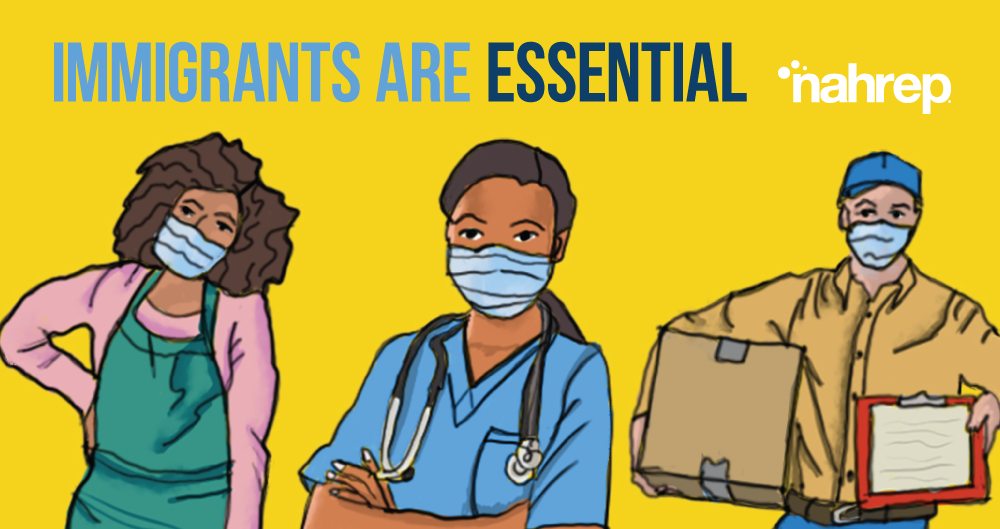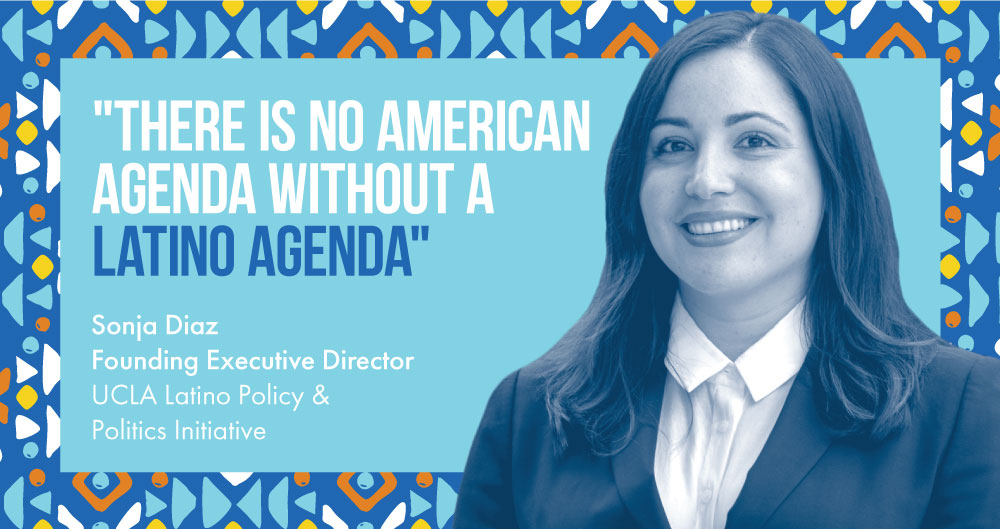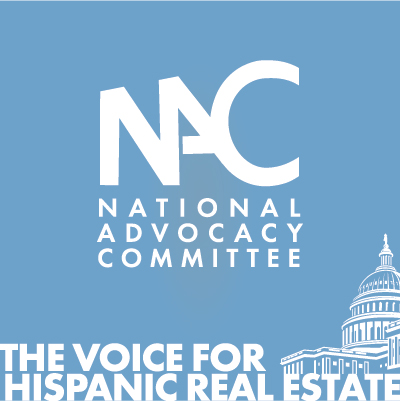NAC Blog: Immigrants as essential workers. What did the CARES Act offer them?
Celebrating NAHREP familia, cultura, politics, and grassroots action
Que onda mi gente?!
In the midst of having a case of cabin fever this week, I decided to take a drive through the agricultural fields of Chino, California. The fields were lined with farm workers hard at work picking fruits and vegetables for our consumption, individuals who are undoubtedly essential through this pandemic. It’s easy to take the food we eat for granted. It’s also easy to forget that the people who do the back-breaking work of producing our food supply are often undocumented. Unfortunately, the COVID-19 pandemic has been particularly challenging for undocumented workers, despite the fact that many essential businesses rely heavily on their labor. This is why I brought in my good friend Sonja Diaz, Founding Executive Director of the UCLA Latino Policy & Politics Initiative, to ask her how undocumented workers are faring in today’s COVID-19 reality.

A conversation with Sonja Diaz of the UCLA Latino Policy & Politics Initiative
How are undocumented immigrants being impacted by COVID-19? What role are they playing as the nation works to flatten the curve of COVID-19 infections?
| Sonja: |
COVID-19 has put a spotlight on the inadequate access that many communities have to
healthcare, particularly since a second wave of the novel coronavirus is expected in the fall, coinciding with flu season. Our country’s limited medical capacity as evidenced by this global pandemic, is even more acute in medically and linguistically underserved communities, where many immigrants live. A recent report by UCLA LPPI expert, Dr. David Hayes-Bautista, Director of the Center for the Study of Latino Health and Culture, found that Latinos are twice as likely to be uninsured compared to non-Latinos in California. Research suggests that low-income communities and communities of color see the doctor far less than their wealthy, white counterparts and tend to have higher rates of certain health conditions, including diabetes, hypertension, and heart disease, all of which are underlying conditions that exacerbate a coronavirus infection.
Further complicating the pandemic is the fact that many workers, namely those that are low-wage and of color, are deemed essential workers and unable to stay home. According to a recent report issued by UCLA LPPI and the UCLA Center for Neighborhood Knowledge, Latinos and immigrants represent an outsized share of front-line workers in service industries that are considered essential. This puts immigrants who work in the fields, in custodial services, at grocery stores, delivery services and in other essential services at increased risk of infection as they perform these critical jobs. |
Now, we know that the Coronavirus Aid Relief and Economic Security Act (CARES) provided critical economic relief to many families. Was there any support in the CARES Act tax paying undocumented workers?
| Sonja: |
Entire immigrant communities are in a precarious financial situation, weakening the economic base in neighborhoods that already have a history of underinvestment and limited opportunities. The federal CARES Act explicitly excludes individuals without a social security number from the relief package’s one-time cash benefit; under the law, mixed status families with undocumented dependents or spouses are also ineligible for the payment. A subsequent study by UCLA LPPI and the UCLA Center for Neighborhood Knowledge found that fifty-six percent of majority Latino neighborhoods in Los Angeles County had a high proportion of residents at risk for not qualifying for federal relief.
In response to this policy loophole, some cities and states are filling gaps to ensure that undocumented workers, including those that pay taxes or work for an employer who pay into the unemployment insurance program, are able to access COVID-19 relief benefits. For example, California Governor Gavin Newsom announced at $125 million public-private disaster relief fund for workers who do not have permanent legal status. Under this program, 150,000 workers will receive a one-time cash benefit of $500 per adult, capped at $1,000 per household. More policy proposals to help support undocumented workers who pay taxes using an ITIN are being explored by elected officials at the state and local level. |
What about for DACA recipients?
| Sonja: | DACA, Temporary Protected Status (TPS) recipients, and other immigrants who have a social security number and file taxes as an individual or jointly with others that have a social security number are eligible for the CARES Act individual rebate. Households with temporary workers, undocumented workers, and nonresidents do not qualify for the CARES Act individual rebate. |
Adding on to Sonja’s contributions, the CARES Act only covered federally-backed loans for forbearance options. Unfortunately, many ITIN borrowers have non-QM loans that were not backed by the federal government. This means that while they may have some loan modification options, the options are going to vary. Same thing applies to DACA borrowers – if they had an FHA or conventional loan through Fannie Mae, they will have the same forbearance options that all borrowers who currently hold a federally-backed mortgage. If they hold a non-QM loan, those added protections will not apply.
Additionally, addressing the portion of the CARES Act that directly excludes mixed status households from receiving stimulus payments is a major priority for NAHREP. Families who have at least one individual in their household filing their taxes using the Individual Taxpayer Identification Numbers (ITINs) have been left out entirely. This is not ok. Particularly given how much the U.S. economy relies on these workers for GDP growth. What is most troubling, is that this restriction also bars access to $500 credits for at least 5.1 million U.S. citizen or noncitizen children with Social Security Numbers. NAHREP is working with other Latino organizations to advocate for a solution to this problem in the next stimulus package.

Thank you so much to Sonja and to the UCLA Latino Policy & Politics Initiative for all of the amazing work they’re doing in the realms of healthcare, housing, voting, criminal justice reform and more. You can read more about their work here. My favorite tag line they have is, “There is no American agenda without a Latino agenda.” Nothing could be more true. Given that Latinos are the youngest and fastest growing demographic, we are the future of this country. We are the New Mainstream.

About Noerena Limón
Noerena Limón is NAHREP’s Executive Vice President of Public Policy and Industry Relations. Noerena heads the organization’s policy and advocacy efforts on issues ranging from homeownership, housing inventory, credit access and immigration.
Prior to joining NAHREP, Noerena spent six years at the Consumer Financial Protection Bureau (CFPB) and served as a political appointee under President Obama in the White House Office of Political Affairs.



